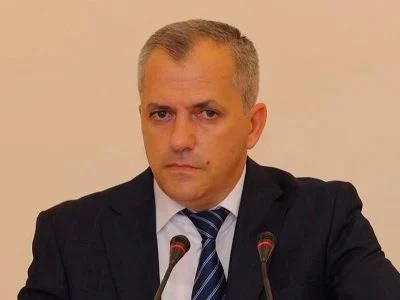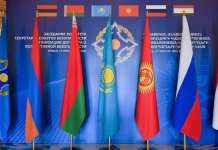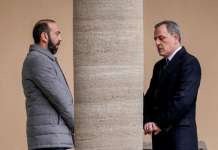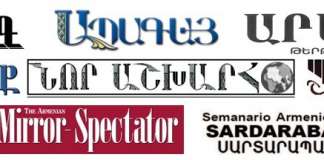I understood that the document to “dissolve” the NKR [i.e. the Nagorno-Karabakh Republic] was illegal, but it was the only way to save the compatriots. According to Sputnik Armenia, the Artsakh (Nagorno-Karabakh) President in exile, Samvel Shahramanyan, stated this in an interview with the French daily Le Figaro—and referring to his decree of September 28, 2023 on the dissolution of the Artsakh Republic.
“Due to the imbalance of forces, we did not have the opportunity to show resistance [against Azerbaijan], that’s why we quickly established contact with the Azerbaijanis, so that the civilian population would be free from combat operations as much as possible.
After twelve hours of negotiations, we put an end to combat operations. The very next day, the citizens of Artsakh asked to evacuate to Armenia, fearing mass murders by the invaders. Thus, we started the second round of negotiations so that their evacuation goes as smoothly as possible,” he said.
Shahramanyan noted that there are still ten to eleven Armenians in Artsakh who are sick or have disabilities, who cannot move freely and do not wish to leave the graves of relatives.
Answering the question of whether there is any contact with the Armenian captives in Azerbaijan, the Artsakh president in exile noted that in addition to the eight leaders of Artsakh, there are also seven servicemen who were captured in September, and he asked France to put pressure on Azerbaijan, demanding the release of all Armenian captives.
Referring to the rumors about whether there is a connection between the elections of the fifth president of Artsakh and the subsequent Azerbaijani attack, Shahramanyan denied it, reminding that the Azerbaijanis were already building up troops on the line of contact.
“It was obvious that after a nine-month siege to weaken us, they were going to attack,” he said.
To the question whether there is a state and government in exile, Shahramanyan responded: “Yes, the office of the President of Artsakh and the offices of the judicial and legislative structures [of Artsakh] are located in the building where I am hosting you in [Armenia’s capital] Yerevan. Parliamentarians [of Artsakh] can gather here to vote. A decree was signed in October, which stipulates that all [Artsakh] government ministers remain in their positions on a voluntary basis.”
And answering the question about the Artsakh Armenians’ possible return to their homes, Shahramanyan said: “In the current situation, it is unrealistic to think about returning to our territory occupied by Azerbaijanis. It is necessary to take into account the realities of the peoples of Azerbaijan and Artsakh who consider themselves enemies. In Baku, Azerbaijanis are taught at school that Armenians are enemies. It will take years for the mindset of the Azerbaijani people to change and peaceful coexistence between the [two] neighbors to become possible. And I am thinking here as much about the Armenians of Armenia as about the Armenians of Artsakh. How can the authorities of Yerevan consider their country safe, when some parts of its territory are already occupied by Azerbaijanis, and the leaders of Baku publicly declare their rights to other [Armenian] territories?”
















